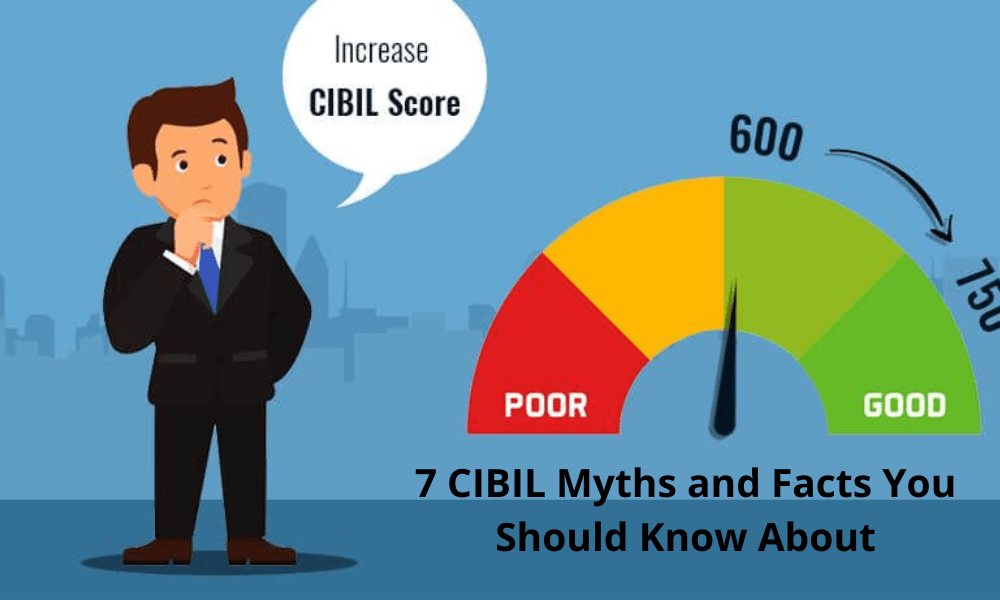What does CIBIL stand for and what does it mean?
CIBIL or the Credit Information Bureau India Limited is one of the four credit information companies that has been licensed by the RBI (Reserve Bank of India). CIBIL is the most popular out of all four. The other three are Experian, Highmark and Equifax.
The CIBIL score, which varies from 300 to 900, is a three-digit numerical summary of your credit history, rating, and reports. The more close to 900 your score is the better.
While applying for a loan you will have to check your CIBIL score and find out what your CIBIL report is. It plays an important role in your application process. But there are many myths and confusion with people around CIBIL and its details.
So let’s separate our myths from the facts
1. If you check your credit report more often it will not lower your score:
One of the most common mistake people make while understanding their credit score is this. Most people are afraid to request for a copy of their credit scores thinking that it will impact their credit scores negatively. But rest assured you can check your credit score as often as you like it without it harming your credit score. Its infact more responsible to stay updated on your credit score.
2. Your Income Does not affect your credit score
Your credit report determines your credit score not your income. One person can be earning a high salary and still have poor credit score while another person who earns relatively lower income could have a higher credit score. What you earn has no impact on your credit score.
3. A bad credit scores does not stay on your record forever
A credit score is presentation of your financial past report. Although it doesn’t mean that if you get a low credit score it will stay on your record for life. You can improve your financial behavior follow good practices and overtime build a good credit history which in turn will lead to a good credit score over time. There is always room for improvement.
4. When applying for a loan a credit score doesn’t determine everything
While it is true that credit score does play a vital role in determining favorable conditions for a loan application as well as credit cards, however it is not the only factor that determines your loan application. Factors like your age, your job type, weather you are on a fixed salary etc. all play a role in the application decision.
5. Debit cards will not help you build a good credit score
Buying anything from your debit card is as good as paying in cash. It creates no impact on your credit score. When you use your debit card you are essentially not borrowing any money simply using the money present in your bank account.
6. Getting married will not automatically merge your credit scores
No matter what your credit scores can’t be merged with someone else. Doesn’t matter if it is marital status or a joint account your credit scores is determined on individual financial behavior and will not change after marriage.
7. Paying off a debt will not erase the entry from your credit report.
It is a misconception among people that once they pay off their debts it will be erased from their credit history. The data of their debt will stay put in their credit history and it might also impact their credit score, it can be a good sign too that you handled your debt well and paid it timely.




